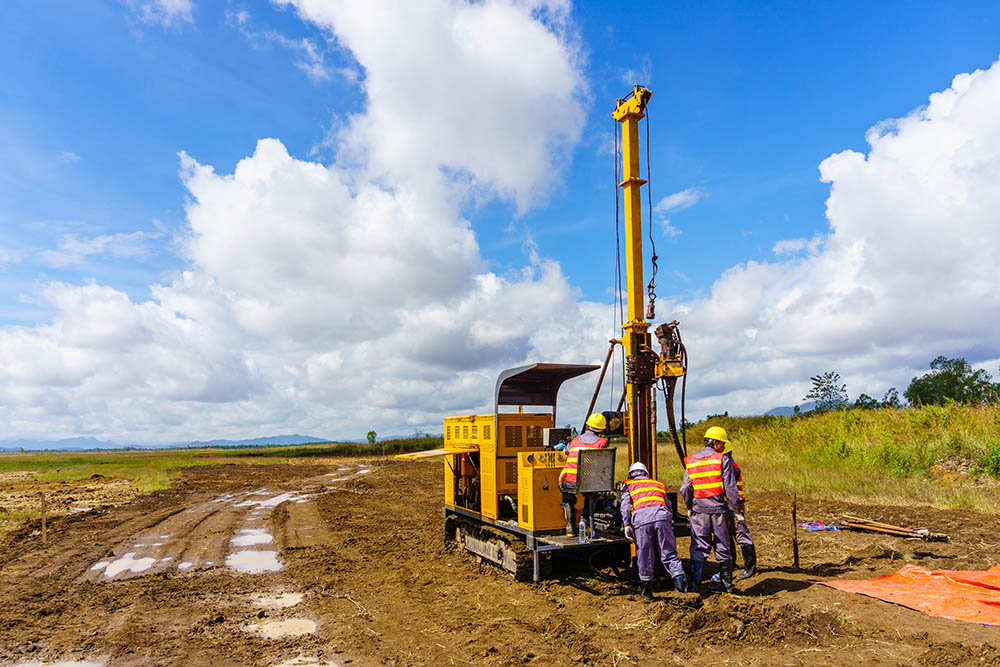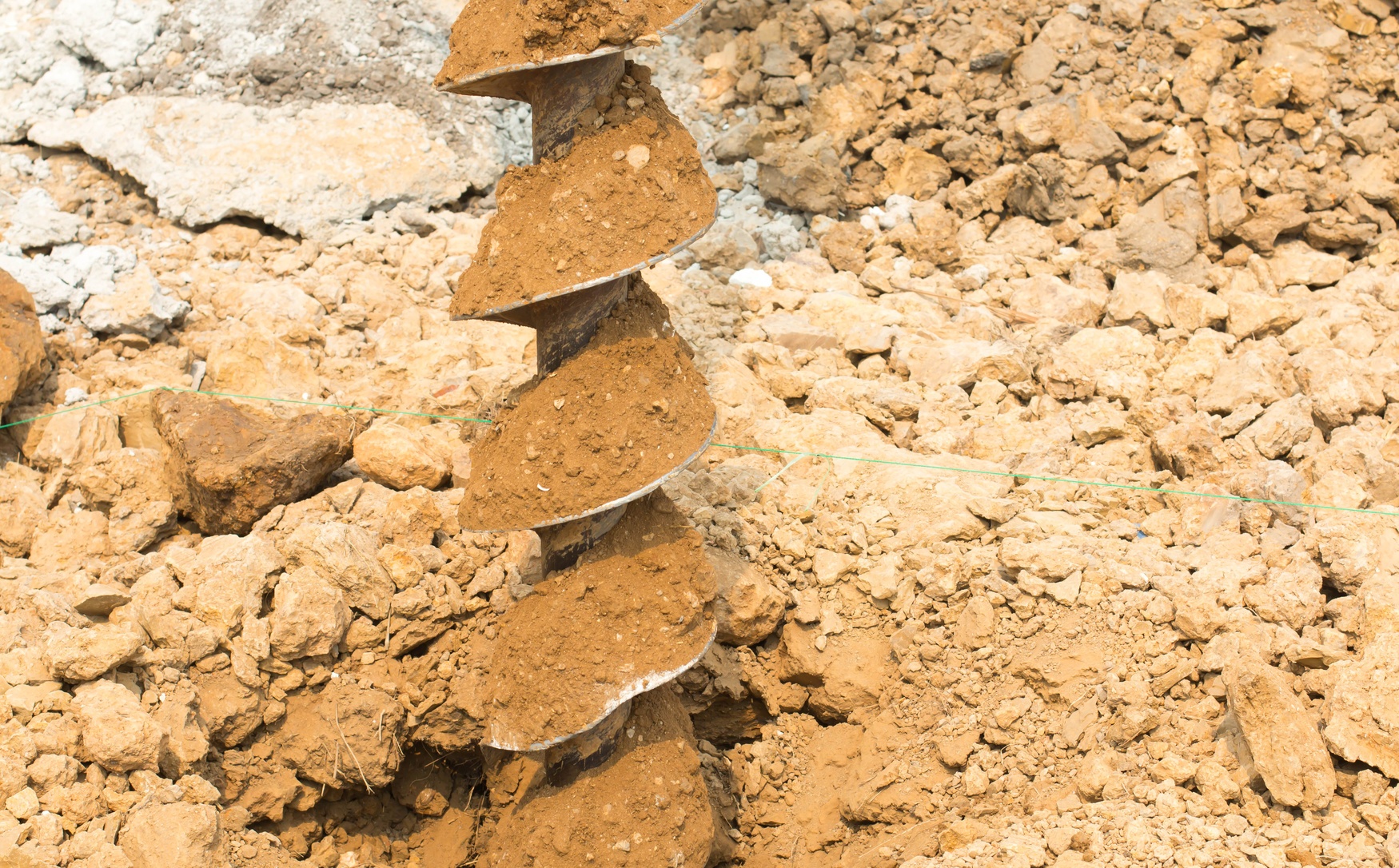The Value of Geotechnical Engineering in Addressing Ecological Obstacles and Enhancing Building And Construction Security
Geotechnical engineering acts as a foundation in the intersection of environmental stewardship and building and construction security, providing crucial understandings into the actions of soil and rock under various problems. This discipline not only addresses pushing environmental obstacles such as soil disintegration and groundwater defense however additionally improves the effectiveness of framework versus all-natural threats. By executing calculated website examinations and tailored reduction measures, geotechnical engineers play an important function in safeguarding both human lives and environmental honesty. Yet, the complexities of these difficulties elevate important concerns concerning the future direction of this area and its implications for sustainable development.

Duty of Geotechnical Engineering
Geotechnical engineering plays an important duty in the layout and construction of facilities by dealing with the actions of dirt and rock materials under numerous problems. This area of design is important for comprehending the interaction between structures and the ground, which includes figuring out the load-bearing capacity of dirt, assessing security, and predicting potential negotiation or failing.
Geotechnical designers are in charge of carrying out site investigations, which involve sampling and testing dirt and rock to collect data on their physical and chemical residential or commercial properties. This information is important for developing foundations, keeping walls, and other earth-retaining frameworks that guarantee security and longevity. Additionally, geotechnical engineering educates the choice of appropriate building methods and products, consequently decreasing dangers connected with soil behavior.
Moreover, the assimilation of geotechnical design principles right into city preparation and environmental administration is critical for attending to challenges such as ground contamination and groundwater monitoring. By comprehending geotechnical variables, engineers can establish sustainable solutions that boost the resilience of infrastructure versus natural threats, while also advertising ecological stewardship. Inevitably, the duty of geotechnical design is vital for achieving risk-free, long lasting, and ecologically aware construction techniques.
Dirt Erosion Reduction
Soil erosion presents a substantial threat to both environmental stability and facilities honesty, influencing approximately 24 billion heaps of productive dirt shed each year worldwide. This sensation is intensified by elements such as deforestation, urbanization, and poor agricultural methods. Geotechnical design plays an essential role in establishing efficient dirt disintegration mitigation strategies that safeguard both the atmosphere and building and construction jobs.
One strategy involves the application of erosion control techniques such as vegetation planting, which maintains soil through root systems. Additionally, the building of keeping terraces and wall surfaces can effectively reduce surface area drainage and safeguard susceptible areas from erosion. Correct drain style is likewise critical; it decreases water buildup and guides excess overflow away from important frameworks.
Additionally, geotechnical engineers employ dirt stablizing methods, such as the application of geotextiles and eco-friendly mats, to enhance dirt cohesion and avoid degradation - geotechnical specialist. Regular surveillance and evaluation of erosion-prone websites allow timely treatments, making sure long-term sustainability. By incorporating these techniques, geotechnical engineering not only mitigates the effects of dirt erosion but also adds to the durability of framework against ecological challenges, ultimately cultivating a much safer and extra sustainable developed setting
Groundwater Protection Approaches
Groundwater acts as an essential resource for alcohol consumption water, farming, and commercial procedures, making its defense important for ecological sustainability and public wellness. Effective groundwater protection methods are critical in alleviating contamination threats and ensuring the durability of this resource.

Normal monitoring of groundwater quality is likewise crucial, enabling early detection of contamination resources and assisting in prompt removal efforts. Using innovative technologies, such as geophysical surveys and remote noticing, aids in identifying potential risks to groundwater reserves.
In addition, public education and stakeholder involvement are crucial, fostering community assistance for groundwater defense initiatives. geotechnical companies in south africa. By integrating regulative measures, technical developments, and community participation, we can produce a thorough structure that safeguards groundwater sources while advertising sustainable growth and building and construction methods
Landslide Risk Monitoring
Landslides position considerable risks to both human safety and security and infrastructure, making effective threat administration techniques crucial. Geotechnical engineering plays a critical duty in determining, examining, and mitigating landslide risks. A detailed understanding of incline stability, soil auto mechanics, and hydrology is crucial for developing efficient danger monitoring strategies.
The very first step in landslide danger monitoring includes thorough website examinations, that include geological mapping and soil screening. These examinations aid engineers evaluate the potential for landslides by recognizing essential variables such as incline angles, soil composition, and water content. Utilizing sophisticated innovations such as remote sensing and geophysical go to my site surveys can boost the accuracy of these analyses.
Once threats are recognized, suitable reduction steps can be carried out. These may consist of design services such as retaining walls, water drainage systems, and slope stabilization techniques. Moreover, monitoring systems must be established to find signs of ground motion and adjustments in water levels, enabling positive treatments.

Enhancing Building Safety
Construction sites often provide a myriad of risks that can endanger worker security and task stability. Geotechnical design plays a crucial role in boosting building and construction security by offering vital insights into subsurface conditions. Via thorough dirt and rock analysis, geotechnical engineers can determine possible threats, such as soil instability, groundwater issues, and seismic susceptabilities, which may compromise the safety and security of construction activities.
Implementing geotechnical options, such as correct foundation style and the use of preserving structures, reduces these dangers dramatically. These services not just make sure the stability of the structures being developed yet also create a much safer working atmosphere for building and construction workers.
Additionally, promoting a society of safety and security via training and adherence to developed safety and security procedures even more enhances building and construction site safety. By incorporating geotechnical know-how into the preparation and execution phases, building and construction jobs can attain greater security standards, eventually shielding employees and ensuring effective project completion.
Conclusion
In conclusion, geotechnical engineering serves as an important self-control in tackling environmental difficulties and advertising construction safety. Through reliable dirt disintegration reduction, groundwater defense techniques, and landslide threat management, geotechnical designers add to the advancement of durable facilities.
Geotechnical engineering serves as a cornerstone in the junction of ecological stewardship and building and construction safety and security, supplying crucial insights right into the actions of dirt and rock under various problems. Geotechnical design educates the option of proper building you could try these out and construction approaches and materials, therefore minimizing dangers linked with soil habits.
Geotechnical design plays a crucial duty in developing click here for more efficient dirt disintegration mitigation methods that safeguard both the atmosphere and building jobs.
Moreover, geotechnical engineers employ soil stabilization methods, such as the application of geotextiles and naturally degradable mats, to improve dirt communication and prevent deterioration. Through extensive dirt and rock analysis, geotechnical designers can identify possible risks, such as dirt instability, groundwater issues, and seismic susceptabilities, which might compromise the safety and security of building tasks.
Comments on “How a Geotechnical Specialist Can Make Certain the Success of Your Structure Foundations”